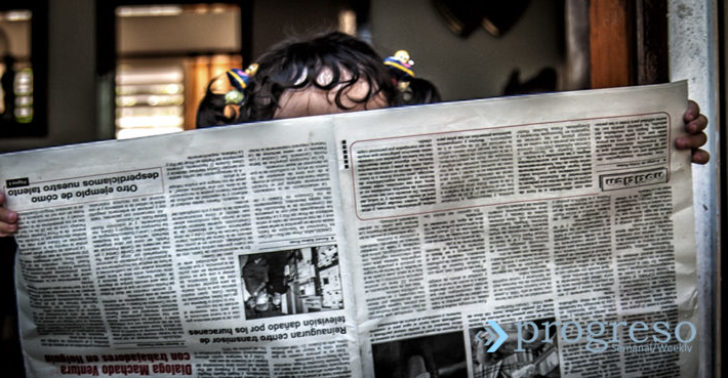
Once again, the hour of the Mameys
HAVANA — The people’s criticism thermometer has risen a lot higher than at other times in the revolutionary process and, in my opinion, the time has come to impose the rules and standards necessary for journalism and its legion of representatives to fulfill their duty to inform, criticize, debate and guide according to each journalist’s professionalism and each medium’s editorial profile.
A longstanding request from the local press (never put into practice) is the creation of spokespersons in each ministry or institution who will pay attention to the media and are not “in a meeting elsewhere” when the members of the press are looking for them. And I’m not being naïve when I call for a Ministry of Information staffed by journalists, capable people who don’t improvise. No space would be made at that agency for the bureaucrats who so much damage are causing our country right now.

And I’m also not naïve when I say that an administrative decision does not solve the basic problem, which reminds me of that article by Manuel Alberto Ramy where he criticized the practice of giving political answers to a question about economics and vice versa, or administrative answers to a merely cultural question. The heart of the problem is conceptualizing the media we need. Everything else comes later.
Criticism is present in all strata of society, and the highest-profile critic (I’m not trying to flatter him) is the president of the councils of State and Ministers himself. Ordinary citizens and academicians of well-deserved prestige voice their disconformity in the middle of the street.
Utilizing my right to opine, I say that the current criticism points in two directions. I paraphrase a statement by Fidel Castro in the early 1960s, when he recognized the general discontent with the Revolution and the discontent against the Revolution and made a distinction between them.
Let us remember this excerpt from a speech by Fidel, when he said (and I quote) “the broadest freedom should exist so the people may utilize these media in favor of the interests of our cause, harshly criticizing anything that is poorly done. I believe that the more criticism exists within socialism, the better.”
The second group will continue to press its efforts from within, at a time when there is no need for a linotype machine and a clandestine printing press to spread ideas person to person. This group is more effective today (and I must acknowledge this) than the first one because, although the second group is fractured, it has engendered the same debate as the fable of the greyhounds and the mutts.
[Translator’s Note: An allusion to the fable by Tomás de Iriarte about two rabbits who argued so long about the breed of the dogs chasing them that they were caught and devoured by the dogs.]

The responsibility of today’s journalism in favor of a better socialist society is enormous and underestimated to such an extreme that it will bear a great deal of blame in the future, when time may have run out.
Cuba could be at the gates of a social convulsion or something like it, with so many old and young discontented people, some of whom are already migrating outside the homeland’s borders.
The role of a brave journalist is not only to clarify and denounce the actions of the empire but also to challenge the high- or mid-level functionaries, be they civilian or military, who act to the detriment of the people’s will. The actions of journalists are now, today. Tomorrow is foretold in every second that elapses today.
In Cuban lingo, we’re looking at a new “hour of the Mameys.” We’re living in new times, not those when, at a bus stop, a shopping center, or on the street, an effusive and enthusiastic militiaman would caution us passionately: “You are wrong, citizen.”
[T.N.: A reference to the occupation of Havana in 1762 by British troops, dubbed Mameys because of their red coats. Every night at 9, they imposed curfew by firing a cannon and patrolling the streets. The expression “hour of the Mameys” meant to the Cubans “be on the alert.” Today, it means a critical time for decision-making, a call to action.]
Photo at top: Carlos Ernesto Escalona Martí/Progreso Semanal
Progreso Weekly authorizes the total or partial reproduction of the articles by our journalists, so long as source and author are identified.

